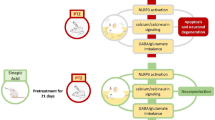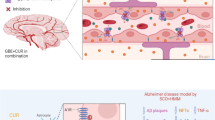Abstract
Recent studies have shown that natural antioxidant compounds have positive effects on the nervous system. Lycopene, the red pigment in tomatoes, is one of the potent natural antioxidants, and is used as supplementation because of its well-known health benefits. However, its effect on epileptic seizures and underlying mechanisms are still unclear. In this study, it was aimed to investigate the effect of lycopene on pentylenetetrazole-induced epileptic seizures in rats and to elucidate the nitric oxide pathway in this effect. In this study, thirty male Wistar albino rats were used. Animals were divided into five groups (n = 6 for each group) as control, saline (1 mL/kg/day serum physiologic), positive control (2 mg/kg/day diazepam), and lycopene (5 and 10 mg/kg/day) for ten days. Pentylenetetrazole (45 mg/kg) was given to induce a seizure in the tenth day except for the control. Passive avoidance test was carried out to evaluate memory function. Inducible nitric oxide synthase (iNOS), neuronal nitric oxide synthase (nNOS), and nitric oxide (NO) levels were measured in the cortex and hippocampal brain regions using the ELISA kits. Lycopene supplementation prolonged epileptic seizure onset times and reduced seizure stages. Besides, lycopene supplementation improved memory impairment after seizures. Moreover, lycopene significantly reduced the level of iNOS, nNOS, and NO in the brain. Lycopene supplementation significantly alleviated seizures and memory impairment. Its anticonvulsive effect could be associated with the nitric oxide pathway. Lycopene supplementation could be useful as a supportive therapeutic agent in epileptic patients.






Similar content being viewed by others
References
Aguiar CCT, Almeida AB, Araújo PVP et al (2012) Oxidative stress and epilepsy: literature review. Oxid Med Cell Longev 2012:1–12. https://doi.org/10.1155/2012/795259
Ahmed MA, Kamel EO (2020) Involvement of H2S, NO and BDNF-TrkB signalling pathway in the protective effects of simvastatin against pentylenetetrazole-induced kindling and cognitive impairments in mice. Basic Clin Pharmacol Toxicol 127:461–476. https://doi.org/10.1111/bcpt.13457
Bahçekapılı N, Akgün-Dar K, Albeniz I et al (2014) Erythropoietin pretreatment suppresses seizures and prevents the increase in inflammatory mediators during pentylenetetrazole-induced generalized seizures. Int J Neurosci 124:762–770. https://doi.org/10.3109/00207454.2013.878935
Bahremand A, Ziai P, Khodadad TK et al (2010) Agmatine enhances the anticonvulsant effect of lithium chloride on pentylenetetrazole-induced seizures in mice: Involvement of l-arginine/nitric oxide pathway. Epilepsy Behav 18:186–192. https://doi.org/10.1016/j.yebeh.2010.04.014
Bhardwaj M, Kumar A (2016) Neuroprotective effect of lycopene against PTZ-induced kindling seizures in mice: possible behavioural, biochemical and mitochondrial dysfunction. Phyther Res 30:306–313. https://doi.org/10.1002/ptr.5533
Bhuvaneswari V, Nagini S (2005) Lycopene: a review of its potential as an anticancer agent. Curr Med Chem Agents 5:627–635. https://doi.org/10.2174/156801105774574667
Brophy GM, Sarma A, Khandker N, Kurczewski L (2016) Medical management of epileptic seizures: challenges and solutions. Neuropsychiatr Dis Treat 12:467–485. https://doi.org/10.2147/NDT.S80586
Bruno RS, Wildman REC (2000) Sources, properties and nutraceutical potential of lycopene. J Nutraceuticals Funct Med Foods 3:9–23. https://doi.org/10.1300/J133v03n02_02
Chen D, Huang C, Chen Z (2019) A review for the pharmacological effect of lycopene in central nervous system disorders. Biomed Pharmacother 111:791–801. https://doi.org/10.1016/j.biopha.2018.12.151
Das N, Dhanawat M, Shrivastava SK (2012) An overview on antiepileptic drugs. Drug Discov Ther 6:178–193. https://doi.org/10.5582/ddt.2012.v6.4.178
Di Mascio P, Kaiser S, Sies H (1989) Lycopene as the most efficient biological carotenoid singlet oxygen quencher. Arch Biochem Biophys 274:532–538. https://doi.org/10.1016/0003-9861(89)90467-0
dos Santos Branco C, Scola G, Rodrigues AD et al (2013) Anticonvulsant, neuroprotective and behavioral effects of organic and conventional yerba mate (Ilex paraguariensis St. Hil.) on pentylenetetrazol-induced seizures in Wistar rats. Brain Res Bull 92:60–68. https://doi.org/10.1016/j.brainresbull.2012.11.008
El Morsy E, Ahmed M (2020) Protective effects of lycopene on hippocampal neurotoxicity and memory impairment induced by bisphenol A in rats. Hum Exp Toxicol 39:1066–1078. https://doi.org/10.1177/0960327120909882
Fuentealba P, Begum R, Capogna M et al (2008) Ivy cells: a population of nitric-oxide-producing, slow-spiking GABAergic neurons and their involvement in hippocampal network activity. Neuron 57:917–929. https://doi.org/10.1016/j.neuron.2008.01.034
Hopper R, Lancaster B, Garthwaite J (2004) On the regulation of NMDA receptors by nitric oxide. Eur J Neurosci 19:1675–1682. https://doi.org/10.1111/j.1460-9568.2004.03306.x
Kandratavicius L, Balista P, Lopes-Aguiar C et al (2014) Animal models of epilepsy: use and limitations. Neuropsychiatr Dis Treat. https://doi.org/10.2147/NDT.S50371
Karabulut S, Bayramov R, Bayramov KK et al (2018) Effect of the allopregnanolone and allotetrahydrodeoxycorticosteron on spike-wave discharges in the EEG of absence epilepsy rat models. Gen Physiol Biophys 37:205–211. https://doi.org/10.4149/gpb_2017041
Karademir M, Gümüş E, Taştemur Y et al (2019) Neuroprotective effect of astaxanthin (ATX) against cognitive impairment on PTZ-induced epileptic seizures in rats and against PTZ-induced neurotoxicity in SH-SY5Y human neuroblastoma cell culture. Cumhur Med J 41:212–222. https://doi.org/10.7197/223.vi.535637
Kovacs R, Rabanus A, Otahal J et al (2009) Endogenous nitric oxide is a key promoting factor for initiation of seizure-like events in hippocampal and entorhinal cortex slices. J Neurosci 29:8565–8577. https://doi.org/10.1523/JNEUROSCI.5698-08.2009
Kruger NJ (2009) The bradford method for protein quantitation. In: Walker JM (eds) The protein protocols handbook. Springer protocols handbooks. Humana Press, Totowa, NJ, pp 17–24. https://doi.org/10.1007/978-1-59745-198-7_4
Kumar V, Sharma SK, Nagarajan K, Dixit PK (2016) Effects of lycopene and sodium valproate on pentylenetetrazol-induced kindling in mice. Iran J Med Sci 41:430
Li S, Luo Z, Lu B et al (2019) Protective effects of lycopene on kainic acid-induced seizures. Epilepsy Res 151:1–6. https://doi.org/10.1016/j.eplepsyres.2019.01.010
Lüttjohann A, Fabene PF, van Luijtelaar G (2009) A revised Racine’s scale for PTZ-induced seizures in rats. Physiol Behav 98:579–586. https://doi.org/10.1016/j.physbeh.2009.09.005
Mao K, You C, Lei D, Zhang H (2015) High dosage of cannabidiol (CBD) alleviates pentylenetetrazole-induced epilepsy in rats by exerting an anticonvulsive effect. Int J Clin Exp Med 8:8820–8827
Mehla J, Reeta KH, Gupta P, Gupta YK (2010) Protective effect of curcumin against seizures and cognitive impairment in a pentylenetetrazole-kindled epileptic rat model. Life Sci 87:596–603. https://doi.org/10.1016/j.lfs.2010.09.006
Mishra A, Goel RK (2015) Comparative behavioral and neurochemical analysis of phenytoin and valproate treatment on epilepsy induced learning and memory deficit: Search for add on therapy. Metab Brain Dis 30:951–958. https://doi.org/10.1007/s11011-015-9650-8
Moylan S, Berk M, Dean OM et al (2014) Oxidative and nitrosative stress in depression: Why so much stress? Neurosci Biobehav Rev 45:46–62. https://doi.org/10.1016/j.neubiorev.2014.05.007
Pawate S, Shen Q, Fan F, Bhat NR (2004) Redox regulation of glial inflammatory response to lipopolysaccharide and interferon? J Neurosci Res 77:540–551. https://doi.org/10.1002/jnr.20180
Quintans-Júnior LJ, Siqueira JS, Melo MS et al (2010) Anticonvulsant evaluation of Rauvolfia ligustrina Willd. ex Roem. and Schult., Apocynaceae, in rodents. Rev Bras Farmacogn 20:54–59. https://doi.org/10.1590/S0102-695X2010000100012
Rao LG, Mackinnon ES, Josse RG et al (2007) Lycopene consumption decreases oxidative stress and bone resorption markers in postmenopausal women. Osteoporos Int 18:109–115. https://doi.org/10.1007/s00198-006-0205-z
Sachdeva AK, Chopra K (2015) Lycopene abrogates Aβ(1–42)-mediated neuroinflammatory cascade in an experimental model of Alzheimer’s disease. J Nutr Biochem 26:736–744. https://doi.org/10.1016/j.jnutbio.2015.01.012
Steinert JR, Robinson SW, Tong H et al (2011) Nitric oxide is an activity-dependent regulator of target neuron intrinsic excitability. Neuron 71:291–305. https://doi.org/10.1016/j.neuron.2011.05.037
Taskiran AS, Ergul M, Gunes H et al (2020) The effects of proton pump inhibitors (pantoprazole) on pentylenetetrazole-induced epileptic seizures in rats and neurotoxicity in the SH-SY5Y human neuroblastoma cell line. Cell Mol Neurobiol. https://doi.org/10.1007/s10571-020-00956-6
Téllez-Zenteno JF, Hernández-Ronquillo L (2012) A review of the epidemiology of temporal lobe epilepsy. Epilepsy Res Treat 2012:1–5. https://doi.org/10.1155/2012/630853
Todorovic SM, Jevtovic-Todorovic V (2014) Redox regulation of neuronal voltage-gated calcium channels. Antioxid Redox Signal 21:880–891. https://doi.org/10.1089/ars.2013.5610
Tricoire L, Vitalis T (2012) Neuronal nitric oxide synthase expressing neurons: a journey from birth to neuronal circuits. Front Neural Circuits. https://doi.org/10.3389/fncir.2012.00082
Ueno M, Yamanishi T, Hatakeyama T et al (2013) Effects of lycopene on the secretion of nitric oxide (NO) and tumor necrosis factor-α (TNF-α) from RAW264.7 cells stimulated with marine invertebrate Holothuroidea (Cucumaria echinata) lectin CEL-I. Jpn J Food Chem Saf. https://doi.org/10.18891/jjfcs.20.3_196
Usunoff KG, Kharazia VN, Valtschanoff JG et al (1999) Nitric oxide synthase-containing projections to the ventrobasal thalamus in the rat. Anat Embryol (Berl) 200:265–281. https://doi.org/10.1007/s004290050278
Van Staveren WC, Markerink-van Ittersum M, Steinbusch HW, de Vente J (2001) The effects of phosphodiesterase inhibition on cyclic GMP and cyclic AMP accumulation in the hippocampus of the rat. Brain Res 888:275–286. https://doi.org/10.1016/S0006-8993(00)03081-X
Ventura ALM, Abreu PA, Freitas RCC et al (2010) Colinergic system: revisiting receptors, regulation and the relationship with Alzheimer disease, schizophrenia, epilepsy and smoking: [review] 37:66–72. https://doi.org/10.1590/S0101-60832010000200007
Whitlock JR (2006) Learning induces long-term potentiation in the hippocampus. Science 313:1093–1097. https://doi.org/10.1126/science.1128134
Yang R, Huang Z-N, Cheng J-S (2000) Anticonvulsion effect of acupuncture might be related to the decrease of neuronal and inducible nitric oxide synthases. Acupunct Electrother Res 25:137–143. https://doi.org/10.3727/036012900816356145
Yin Q, Ma Y, Hong Y et al (2014) Lycopene attenuates insulin signaling deficits, oxidative stress, neuroinflammation, and cognitive impairment in fructose-drinking insulin resistant rats. Neuropharmacology 86:389–396. https://doi.org/10.1016/j.neuropharm.2014.07.020
Zhou L, Zhu D-Y (2009) Neuronal nitric oxide synthase: Structure, subcellular localization, regulation, and clinical implications. Nitric Oxide 20:223–230. https://doi.org/10.1016/j.niox.2009.03.001
Zhu X, Dong J, Han B et al (2017) Neuronal nitric oxide synthase contributes to PTZ kindling epilepsy-induced hippocampal endoplasmic reticulum stress and oxidative damage. Front Cell Neurosci 11:377. https://doi.org/10.3389/fncel.2017.00377
Acknowledgements
The authors thank the Sivas Cumhuriyet University, School of Medicine, CUTFAM Research Center, Sivas, Turkey, for providing the necessary facilities to conduct this study.
Author information
Authors and Affiliations
Corresponding author
Ethics declarations
Conflict of interest
The authors have no conflict of interest to disclose.
Additional information
Communicated by Sreedharan Sajikumar.
Publisher's Note
Springer Nature remains neutral with regard to jurisdictional claims in published maps and institutional affiliations.
Rights and permissions
About this article
Cite this article
Taskiran, A.S., Tastemur, Y. The role of nitric oxide in anticonvulsant effects of lycopene supplementation on pentylenetetrazole-induced epileptic seizures in rats. Exp Brain Res 239, 591–599 (2021). https://doi.org/10.1007/s00221-020-06012-5
Received:
Accepted:
Published:
Issue Date:
DOI: https://doi.org/10.1007/s00221-020-06012-5




